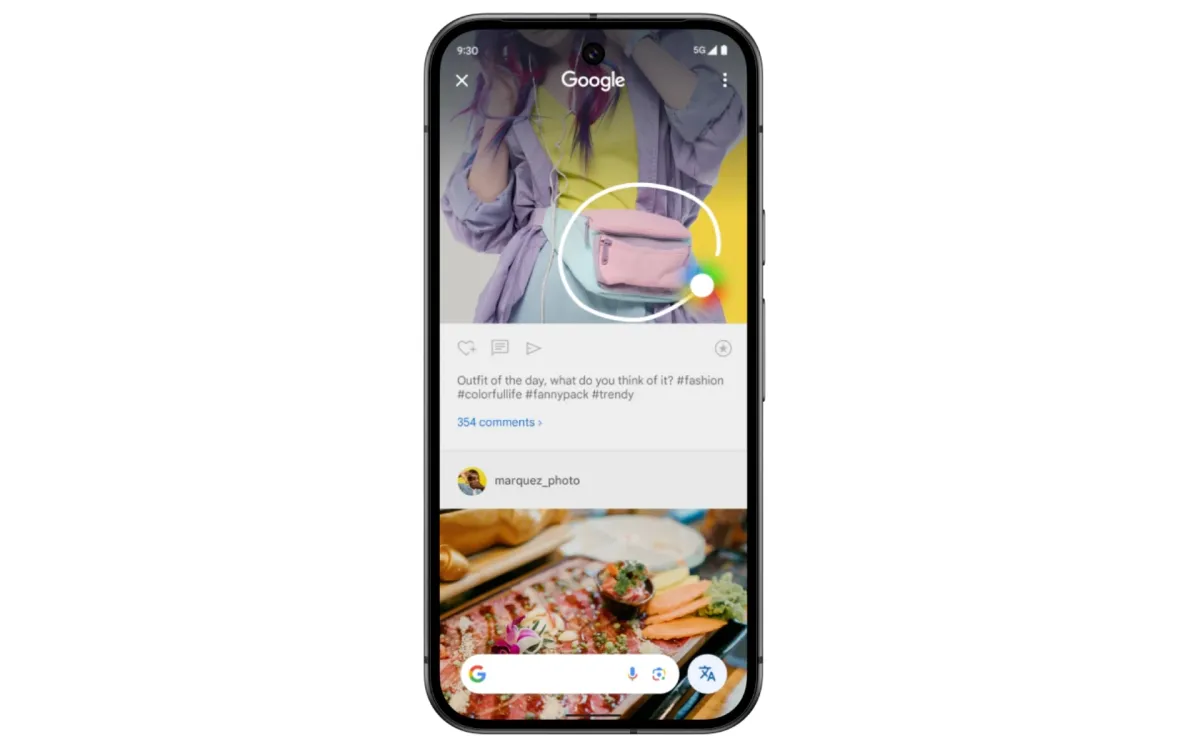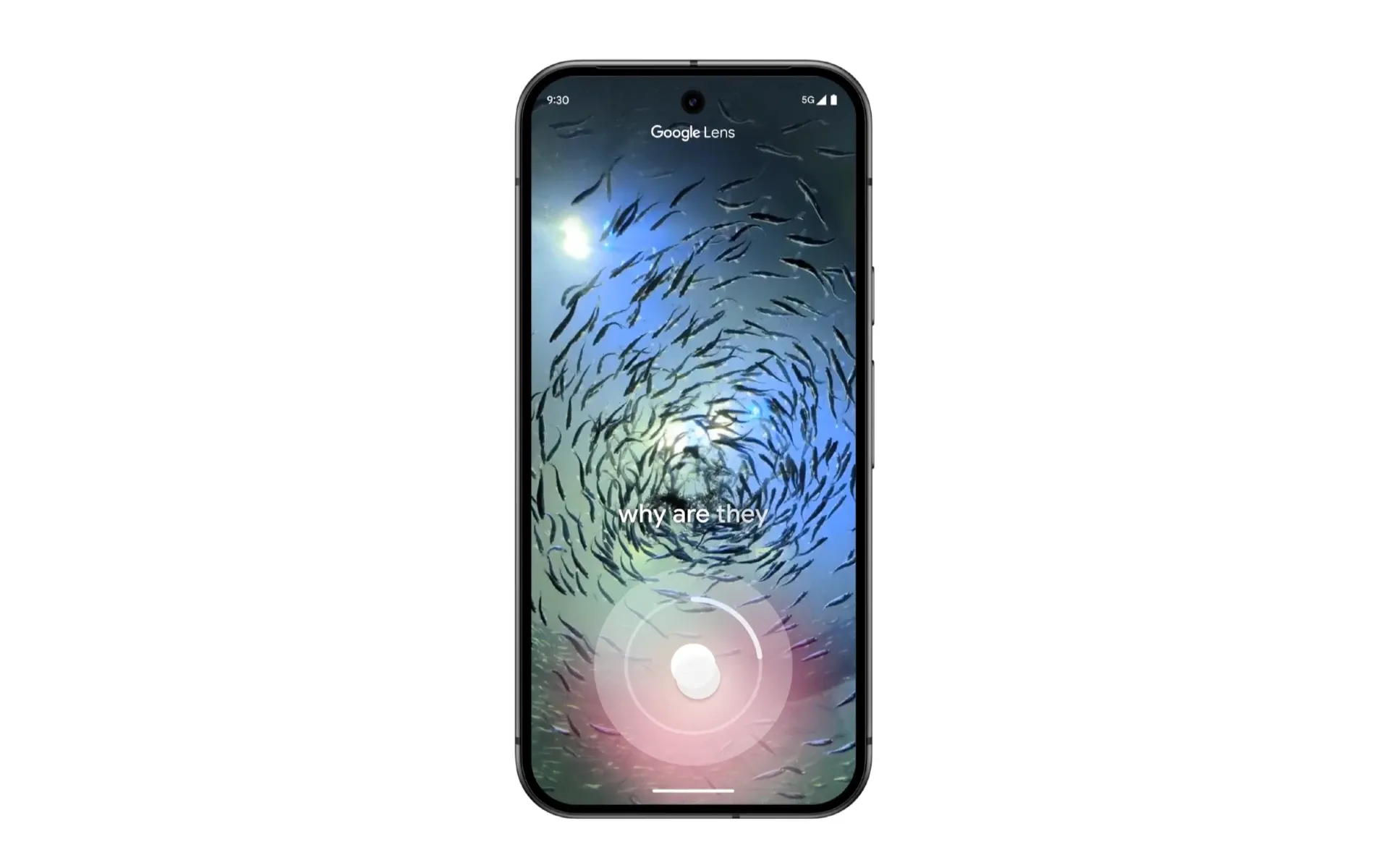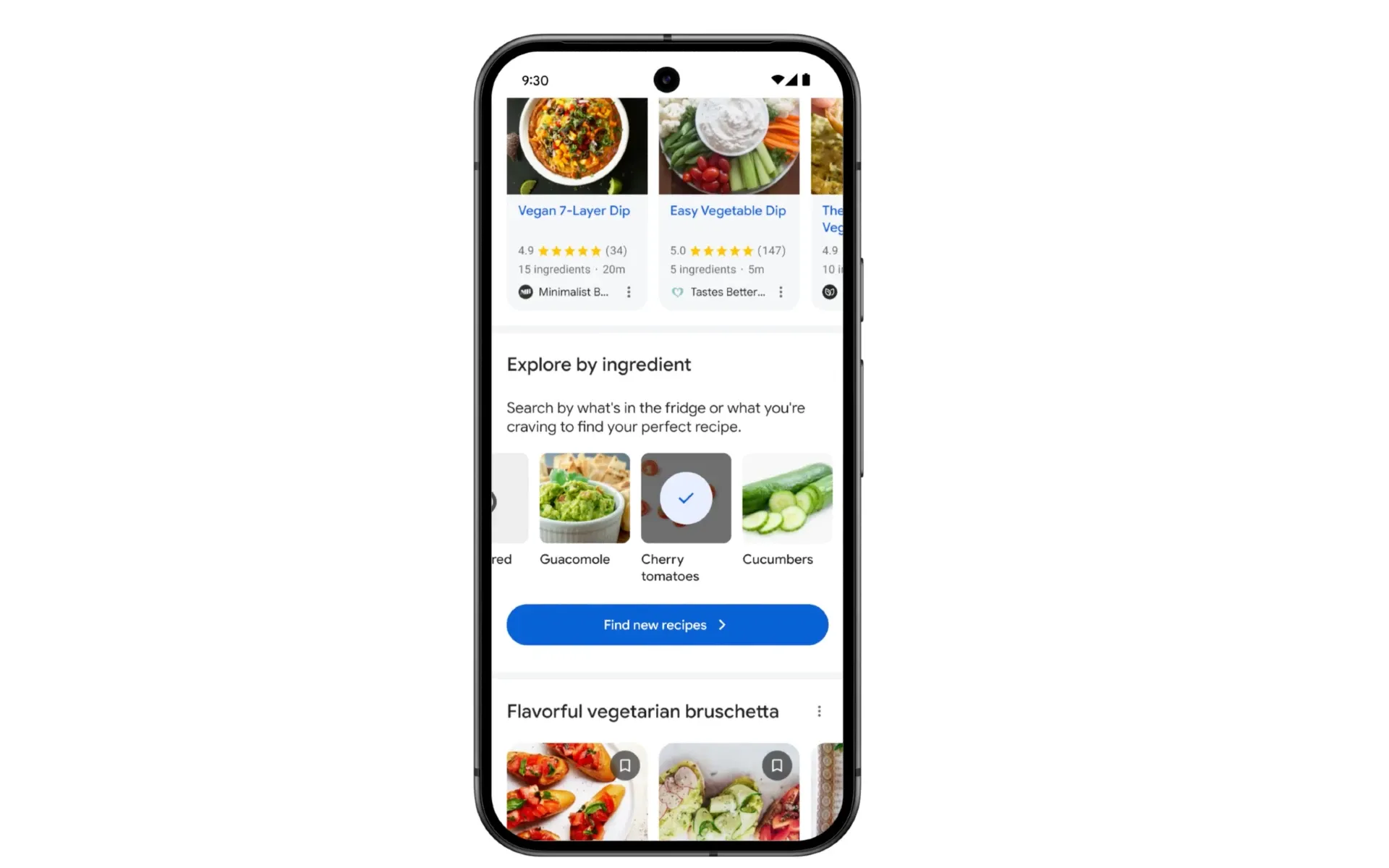
Google has announced significant updates to its search capabilities, leveraging artificial intelligence to transform how users interact with and discover information online. These advancements, revealed on October 3, 2024, aim to make search more intuitive, visual, and comprehensive.
Google has introduced AI-organized search results pages, starting with recipes and meal inspiration on mobile devices in the United States. This new full-page experience uses artificial intelligence to present relevant results in a more user-friendly and comprehensive manner.
According to Liz Reid, VP and Head of Google Search, "Our AI-organized search results pages have been found more helpful by users in testing. We're bringing people more diverse content formats and sites, creating even more opportunities for content to be discovered."
Enhanced visual search capabilities
Video Understanding in Google Lens
Google Lens, the company's visual search tool, now incorporates video understanding capabilities. Users can take a video and ask questions about moving objects they see. This feature is available globally in the Google app for Search Labs users enrolled in the "AI Overviews and more" experiment, supporting English queries.

Voice Questions in Lens
Voice input has been added to Google Lens, allowing users to ask questions verbally while taking a photo. This feature is now available globally in the Google app for Android and iOS, supporting English queries.
Improved Shopping Experience with Lens
Google has significantly enhanced the shopping experience within Lens. When users photograph a product, Lens now provides a comprehensive results page featuring key information such as reviews, price comparisons across retailers, and purchase options.
Lilian Rincon, Vice President of Product Management at Google, stated, "Lens merges the power of Google's AI and more than 45 billion products in the Shopping Graph to not only help you discover visual matches of what you love, but also identify specific products and details about them before you buy."
AI-Powered Overviews
Google has redesigned AI Overviews to include prominent links to supporting webpages directly within the text. This update aims to drive more traffic to supporting websites and make it easier for users to visit sites of interest.
Additionally, Google has begun testing ads in AI Overviews for relevant queries in the United States. The company reports that users find these ads helpful for quickly connecting with relevant businesses, products, and services.

Circle to Search: seamless cross-app searching
The Circle to Search feature has been expanded to more than 150 million Android devices. This tool allows users to search for information across different apps without switching between them. A notable addition is the ability to identify songs playing in videos or on websites instantly.
Key Facts and Figures
- Google Lens is used for nearly 20 billion visual searches every month.
- 20% of all Google Lens searches are shopping-related.
- The Shopping Graph contains information on more than 45 billion products.
- Circle to Search is now available on over 150 million Android devices.
- One-third of users who have tried Circle to Search use it weekly.
Impact on content discovery and web traffic
Google emphasizes that these AI-powered updates aim to help users discover a wider range of content from across the web. The company reports that AI-organized search results pages are driving increased traffic to supporting websites compared to previous designs.
As these features continue to roll out globally, Google anticipates further improvements in user satisfaction and more diverse content discovery. The company remains committed to expanding the types of questions users can ask and reimagining how Search can provide information quickly and effectively.

